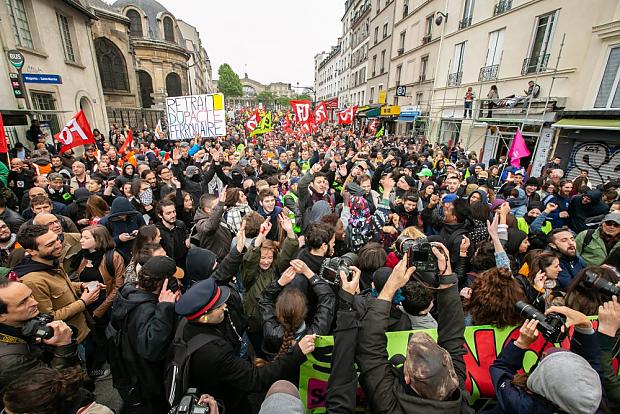Shut up about a 'social Europe'
Shut up about a 'social Europe'
It was one of the Juncker Commission;s promises: the European Union would have a social pillar and as a result, everything would be different. If you follow the news, you'll know that this isn't what happened. The EU finds it tremendous that French President Emmanuel Macron is pushing the liberalisation of his country's railways, with the workers as its first victims. Their terms of employment are to be 'reformed', for which read demolished. At almost the same moment, the national public broadcaster NOS reports that call centres in, amongst other places, Lisbon, are holding down costs by exploiting young Dutch people. A truly social EU would take some sort of action against this, but in Brussels all is quiet.

It's a more general trend which increasingly sees services provided by firms from low-wage countries both inside and outside the EU, including servies to Dutch companies. Someone emailed me to ask whether what we want to do to counter tax evasion shouldn't also be done in the case of wages. If Dutch firms are directly or indirectly involved in outsourcing abroad, enabling them to pay young Dutch workers a rate below the minimum wage whilst also avoiding social charges, then they were equally deserving of punishment. The constructions making this possible are hugely complicated, because the young people in question are employed by a call centre that delivers services to Dutch firms, yet formally the call centre comes under another country's law. But this also applied to tax avoidance, which was legally permissible but morally unacceptable. A truly social EU would deal with this sort of construction, and quickly.
The same goes in the case of the French railways. The terms of employment of the French railworkers are better than those of people who do the same job elsewhere, for instance in the Netherlands. But it's hardly a 'social Europe' if there's rejoicing over the fact that Macron may manage to break the union, just as Thatcher did with the British mineworkers' unions. The railways are no ordinary services. Most MEPs agree with this and a majority supported my proposals aimed as improving passengers' rights, and pushing railways into cooperating with each other. So it's also no coincidence that national governments have been able to keep a finger in the pie. If they fail to do that, they'll soon find themselves in the situation of the British, where private rail firms provide poor services and charge very high fares, while at the same time their employees' rights are stripped away. A social EU should not put liberalisation above workers' rights. In such an EU, Macron would not be celebrated in Brussels, but would instead be reminded of the need to take account of the demands of the unions. I'm curious to know how things unfold with both the call centres and the French railways. But if things continue in the same direction, and the interests of major corporations and the dogma of liberalisation outweigh the interests of the workers, then I think the Commission should stop talking about a ‘Social Europe’.
- See also:
- Dennis de Jong
- Europe
